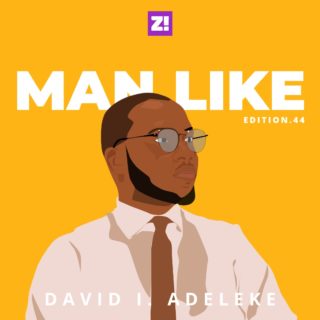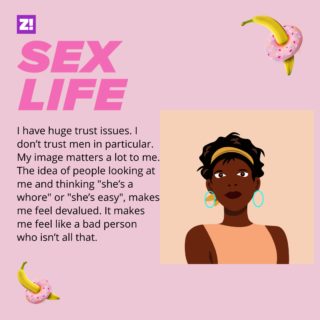In 2018, Luke*, a 31-year-old content strategist, was working at a media startup that required him to put in a lot of hours — a job he describes as “mentally draining”. However, even when he could clock out, Luke refused to.
‘‘Some days, I would finish working early, but I’d refuse to go back home because of my ex-girlfriend,’’ Luke tells Zikoko. ‘‘I would stay back watching movies on the office TV, sometimes I would go to a friend’s place and stay till really late. The longer I stayed out, the better for me. Whenever I started driving home, my heart would start beating fast.’’
For Luke, going back home meant returning to his girlfriend who was emotionally and physically abusive.
‘‘She would hit me, punch me, slap me and call me demeaning names,’’ Luke recalls. ‘‘One of the first times was about five months into our relationship. We were driving home from a birthday party, and she asked me who a female friend I talked to at the party was. I told her we worked together on a project in the past. She asked me why we were flirting, then she hit me. Next, she came for the steering wheel. Luckily, it was late at night and the road was empty. She didn’t care.’’
The next day, Luke’s girlfriend blamed her behaviour on her being drunk and stated that Luke could have avoided it all by not flirting with another woman. It began a violent cycle of abuse, both physical and emotional.
According to the United States of America’s CDC’s National Intimate Partner and Sexual Violence Survey, 1 in 4 women and 1 in 9 men have experienced experience severe intimate partner physical violence. However, studies have also shown that when compared to women, men are less likely to report it due to fear of being emasculated.
‘‘I think I am a sub’’ Tobi*, a 28-year-old banker, tells Zikoko. ‘‘I like Dom women. Women who take charge. And I have been in great relationships with a few. However, my last partner was just plain abusive. One day, we were having an argument, and she took a lit candle and stabbed my stomach. It hurt but not too much. That was when I realised she was a violent person who was willing to hurt me. I am lucky because I clocked it early, but I only ended the relationship because she pushed it even further.’’ Tobi shares that he ended the relationship after his girlfriend hit his head with a pot when he was arguing with her.
‘‘I felt confused, shocked, hurt and scared. All at the same time.’’ Tobi began. ‘‘I locked myself in my room and called a friend. When my friend came, she suddenly started begging me to not leave her. I’m grateful for my friend who stuck to his guns and got me out of there and ensured I ended it.’’
For the men we interviewed for this piece, they have a shared concern about defending themselves against the women who abuse them at the risk of being made out to be abusers as well or, worse, being viewed as the ones who instigated the abuse in the first place.
‘‘I know more often than not, men are the ones abusing women they are dating or married to. I know that many people don’t think men are the victims of domestic abuse, but it is possible.’’ Luke says. ‘‘When my girlfriend hit me the second time, I stopped her hands before she could hit me and she started crying. I left immediately because I know how easy it is for the narrative to change.’’ Tobi remembers a similar thing going through his head:
‘’I made sure I removed myself from the situation whenever it started because if I didn’t do that, I would have reacted.’’ Tobi shares. ‘‘I might want to defend myself and that would be misconstrued as me hitting her when she tells people. And as the man, I look most likely to be the abusive partner.’’
Intimate partner abuse against men isn’t only found in relationships with people of a different gender. Several studies have shown that the prevalence of abuse between people in same-gender relationships is similar and almost equal to that of heterosexual relationships. However, when Chris*, a gay man living in Nigeria, began to experience abuse at the hands of his partner for almost a year, he was confused.
‘‘I remember wondering how this was possible.’’ Chris recounts. ‘‘It’s stupid, but I had never imagined that a gay man could be abused in a gay relationship. I assumed because we are both guys with a level of equality, abuse wouldn’t be possible.’’
Chris further describes the first time it happened and noted that he gaslit himself because he didn’t want to believe it happened.
‘‘Essentially, I didn’t want to have sex. He wanted to. He hit me and forced himself on me. I remember my hands being sore for days after that, and I remember him apologising and crying because he hurt me. So I was wondering if maybe it was just one of those things.’’ Chris tells Zikoko.
However, over the following months, the abuse worsened.
‘‘I was living with him because he was better off financially. And I think that made it worse,’’ Chris shares. ‘‘It was hard to talk about it to anyone else because I had never heard of this happening to a gay person I know, so I was like, ‘Is this even real?’ The first person that found out was my best friend who was perceptive enough to realise what was wrong and pressured me to open up to him. I eventually moved in with my best friendhim and ended the relationship.’’
For many of the people in this piece, an environment and society where men were made to realise they could be victims of abuse — financial, physical, emotional and all the forms of abuse in between — would have helped them exit the toxic relationships a lot faster. It further shows the importance of safe spaces where men of varying orientations can talk about issues like these without being judged. It also shows how the media can help men realise that regardless of their gender or physical strength, they could also be victims of intimate partner abuse, sometimes without even knowing it.
- Names have been changed to protect their privacy.




